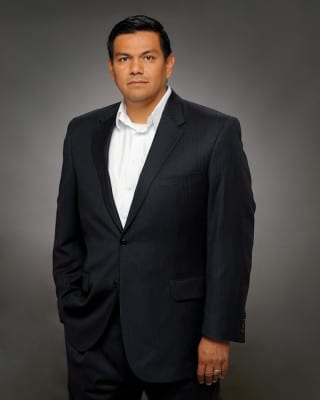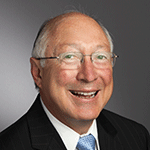From his corner office in Wilshire Connection’s Los Angeles headquarters, Glenn Nieves can see the tiny apartment complex in which he was raised. It’s only ten minutes from the attorney’s office building, but it seems like a world away.

Nieves is general counsel, vice president of government affairs, and secretary for Wilshire Connection (Wilcon), the largest privately held fiber optic network provider in Southern California. He previously served as an advisory board member for the Hispanic Scholarship Fund and created an internship program at Wilcon that aims to draw minority youth.
“I wouldn’t change my upbringing for the world,” Nieves asserts. Though he didn’t come from a background in which the path to college and law school was expected of him, his eyes were opened to the possibility. His mother immigrated to California from Nicaragua, and his father came from Puerto Rico. Nieves was raised in the Pico-Union District in Los Angeles, one of the most impoverished and overcrowded neighborhoods in the city. His father was a meat packer with a sixth grade education, and his mother who had a high school education worked as a cashier. Both impressed upon him the value of education.
It clicked for Nieves during his junior year of high school, when his English literature teacher assigned Ralph Ellison’s Invisible Man. At the time, he was trying to figure out what career path he might take, and the book’s themes of identity, transcending race, ambition, and overcoming perceptions resonated with the teenager.
“As a minority, many stereotypes are thrown at you, whether justified or not,” Nieves says. “Sometimes you let those stereotypes inform your decisions. You need fortitude to stay true to yourself and stay true to your values.”
Nieves attended California State University, Los Angeles while working full-time to help his parents. He made a promise to his father that he would someday give back to the community. His father died when Nieves was 21, before he could see his son graduate. To fulfill his promise, Nieves became a teacher at an inner-city school where students were primarily first-generation Americans or immigrants. His later work with the scholarship fund was a continuation of that vow.
His time as a teacher was the first opportunity Nieves, who had attended a parochial school, had to observe the public school system. He quickly developed an insider’s view on what needed to change.
That viewpoint served him when he decided to attend law school at the University of California, Los Angeles. He remained devoted to promoting education for minority youths. There are many aspects of growing up in a low-income household that people with privilege have never considered, but Nieves knows firsthand what many children miss. “Though they might have wanted to, I didn’t have folks that had time to take me out on a summer trip, or even just go to museums,” Nieves says. “School allowed me to visit those places, even if only through textbooks and lessons.”
The Supreme Court recently upheld Michigan’s ban on affirmative action that bars universities from considering race as a factor in admissions to universities. This decision that could open the door to other states to ban affirmative action, and Nieves sees the landscape changing. In response, he feels the need to improve diversity in his own office.
“There are so many benefits to having a diverse workforce,” Nieves contends. “You want people from different paths, with different values and different ways of looking at things that you might not have considered.”
Most realize the need for diversity, Nieves adds, but no one can agree yet on how it should be achieved. Nieves repurposes Supreme Court Justice Potter Stewart’s words, originally used to describe a threshold test for obscenity, to describe how many people view diversity: “I shall not today attempt further to define (it) . . . But I know it when I see it.”
Nieves insists that individuals of every color, race, and origin must act as mentors to the next generation and create the future they envision. Nothing ends with you, he says; impact can always stretch further.

